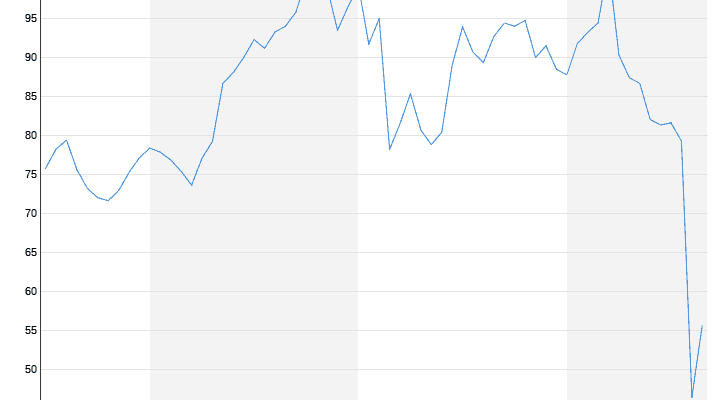Friday June 18, 2021
Flop in vaccine development
Curevac in the race against the mutants
From Monika Dunkel
The tragedy could hardly be greater: Of all people, Curevac, the company that practically invented mRNA technology, fails in an important study with its vaccine candidate. The reason for the failure should, however, also have a closer look at the competition.
Just before midnight, hope died out. The vaccine candidate CVnCoV from the Tübingen-based company Curevac only showed an effectiveness of 47 percent, according to the finding that the company disclosed via a mandatory stock market announcement Wednesday night.
A preliminary result, part of an interim analysis. But with one tough consequence: this is by far not enough for approval by the European approval authority EMA. The data is miserable compared to what competitor Biontech / Pfizer provided, whose mRNA vaccine is 95 percent effective.
The tragedy could hardly be greater. Ironically, the company that practically invented the revolutionary mRNA technology, whose founder Ingmar Hoerr researched the fundamentals in his doctoral thesis and was nominated for the Nobel Prize in spring, has now failed the decisive study. This also shatters the long-nourished hope that Curevac could achieve a belated victory in the race to develop new vaccines against the Covid-19 pandemic. For a long time, the company used this narrative to woo investors, governments and the general public to be patient. After all, the world is far from being fully vaccinated, the need is still great, especially in emerging countries, and booster vaccinations are necessary worldwide. In addition, Curevac’s vaccine has many advantages, such as being easy to transport, as CVnCoV does not require a complex cold chain.
All of that no longer works. The stock market punished the company tough – the price sank in phases by more than half, all of a sudden more than eight billion dollars in market capitalization were destroyed. But the result also raises many questions beyond the financial markets – for the world, but also for Curevac. What will happen now with the vaccination, do other manufacturers have a better grip on the mutants, what will happen to Curevac if the bet (late, but better) doesn’t work out?
It is already clear that Curevac is starting a new attempt. How quickly they can increase their effectiveness is unclear. Allegedly, the great advantage of mRNA technology is that it can be reprogrammed relatively quickly for new virus mutants. But Curevac itself no longer wants to make specific prognoses: There should be a new study with a new vaccine candidate, approval is expected in 2022. At least for the time being, Curevac will not be a supplier, which means that around 300 million CVnCoV vaccine doses will be missing worldwide this year and up to a billion next year. Germany and the EU should be able to cope with this – there are new providers and Biontech is continuing to build capacities, even if this will delay the vaccination a little and especially children and adolescents will have to wait longer. The situation is different in poorer countries.
Curevac blames the multitude of new variants for its failure. One was confronted with an “unprecedented” situation, since 13 variants are now in circulation. Of 124 Covid sufferers examined, only one case could be traced back to the original Sars-CoV-2 virus. According to the company, more than half of the cases (57 percent) were caused by “concern” variants. If Curevac is right and the variants have defeated an otherwise effective vaccine, the question arises as to what that means for the mRNA vaccines from Pfizer / Biontech and Moderna. Both use the same basic mRNA technology to activate the immune system with copies of the spike protein on cell surfaces. So far, both score points with high efficacy rates and safety – at least with the best-known variants. But what about ever new and more aggressive variants – are they able to defeat these new enemies?
A completely different vaccine manufacturer aroused hope these days: The US manufacturer Novavax reported an effectiveness rate of 90.3 percent in almost 30,000 patients in the USA and Mexico. Novavax works on the same principle as vaccinations against hepatitis B or tetanus: It contains a tiny particle of the distinctive spike protein. The immune system responds to the proteins in the vaccine. But on closer inspection it becomes clear: With the South African variant B.1.351, it is also limp (49 percent effectiveness). No information is yet available on other variants such as gamma or delta. It’s not good news coming from Curevac, either for the company or for the pandemic fight. Because now the question arises who is faster, the mutants or us.
.

